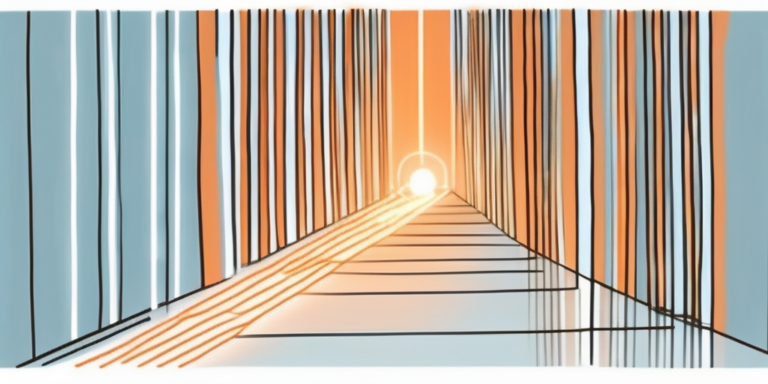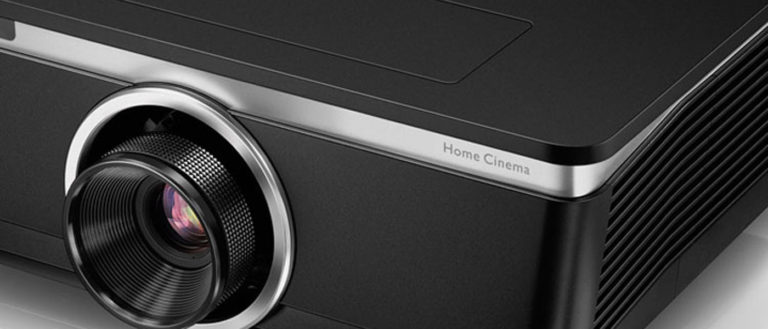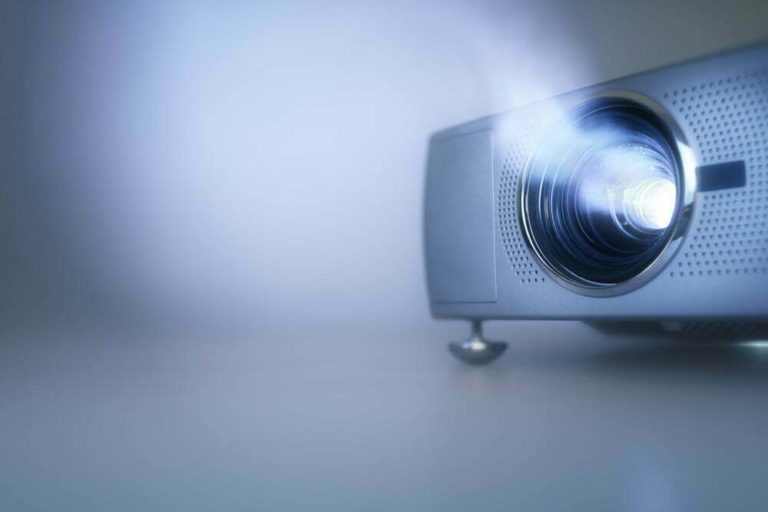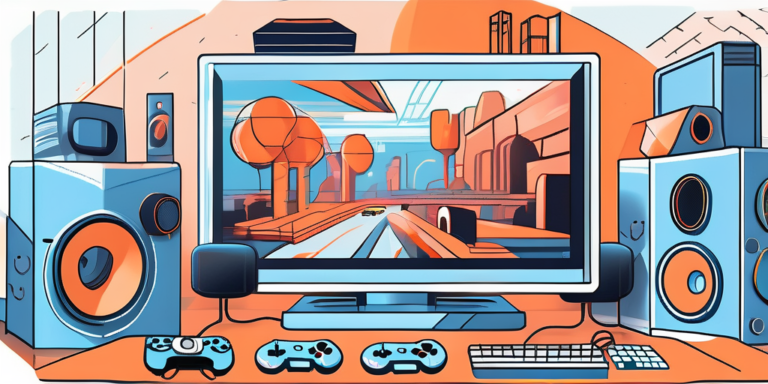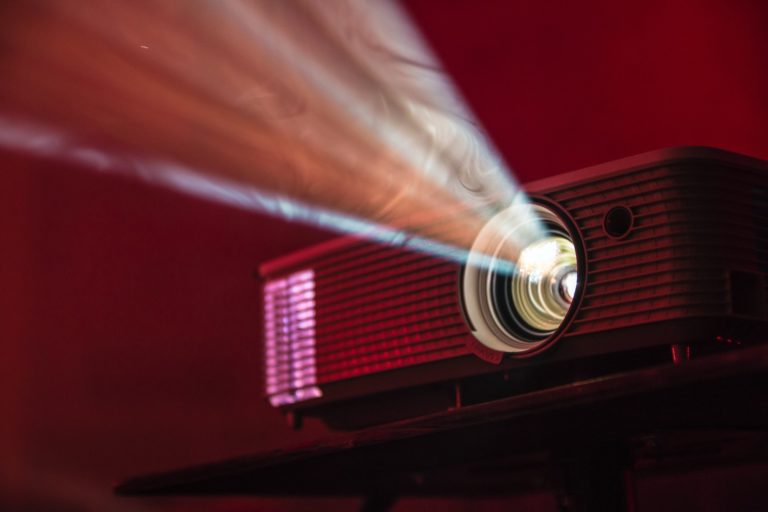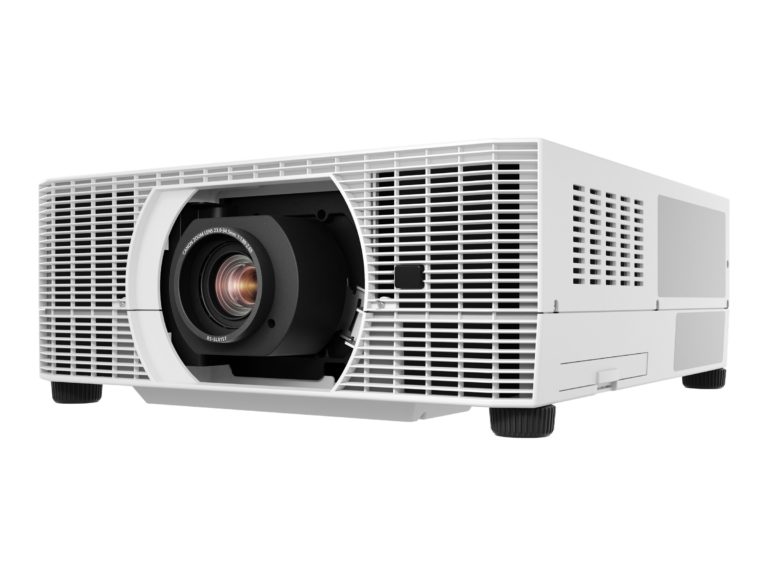Laser projectors are a newer type of projector that use lasers to create the image on a screen, rather than traditional bulbs. They have become increasingly popular in recent years due to their improved performance and longer lifespan compared to traditional projectors.
So, how do laser projectors work? Essentially, a laser is used to create a beam of light that is then split into three separate beams of red, green, and blue light. These beams are then directed onto a spinning color wheel, which reflects the light onto the projector’s lenses and onto the screen. This allows the projector to produce a high-quality image with accurate colors and a wide color gamut.
But are laser projectors better? In general, yes. They offer a number of advantages over traditional LED projectors, including:
Longer lifespan: Laser projectors can last up to three times longer than LED projectors, meaning you won’t have to replace them as often.
Higher brightness: Laser projectors can produce higher brightness levels, making them ideal for use in well-lit rooms or outdoor environments.
Better color accuracy: Laser projectors are known for their excellent color accuracy, making them ideal for use in professional settings where accurate color reproduction is crucial.
Lower maintenance: Laser projectors require very little maintenance, as there are no bulbs to replace.
So, how long will a laser projector last? It’s difficult to give a precise answer as it will depend on the specific model and how it is used, but you can expect a laser projector to last for at least 20,000 hours of use. This is significantly longer than traditional LED projectors, which typically last for around 5,000 to 6,000 hours.
As for maintenance, laser projectors generally don’t require much. You may need to occasionally clean the lenses and filters, but other than that, there shouldn’t be much maintenance required.
However, there are still a few steps you can take to ensure that your projector is operating at its best and to extend its lifespan.
One of the most important things you can do is to regularly clean the projector’s lenses and filters. Dust, dirt, and other debris can accumulate on these surfaces and affect the quality of the image, so it’s important to keep them clean. To clean the lenses, use a soft, dry cloth or a lens-cleaning solution specifically designed for use on projector lenses. Avoid using any harsh chemicals or abrasive materials, as these can damage the lenses. As for the filters, these can usually be removed and cleaned with a soft, dry cloth.
Another important step you can take is to keep the projector in a cool, dry environment. Laser projectors can be sensitive to temperature and moisture, so it’s important to keep them away from sources of heat and moisture. This means avoiding placing the projector near heaters, air conditioners, or other sources of heat or moisture, and making sure that the room where the projector is used is well-ventilated.
Finally, it’s a good idea to periodically check the projector for any signs of wear or damage. This includes checking for loose screws or other hardware, as well as inspecting the cables and connectors for any signs of damage. If you notice any issues, it’s best to address them as soon as possible to avoid any potential problems down the road.
In conclusion, while laser projectors require very little maintenance, there are a few steps you can take to ensure that your projector is operating at its best and to extend its lifespan. These include regularly cleaning the lenses and filters, keeping the projector in a cool, dry environment, and checking for any signs of wear or damage. By following these tips, you can ensure that your laser projector continues to perform at its best for years to come.
One important thing to note is that laser projectors do not require bulbs, as they use lasers to create the image. This means you won’t have to worry about replacing bulbs, which can be a hassle with traditional projectors.
As for lumens, this refers to the brightness of the projector. The number of lumens you’ll need will depend on the size of the room and the ambient light levels. In general, a projector with 2,000 to 2,500 lumens will be suitable for use in a small to medium-sized room with moderate lighting, while a projector with 3,000 or more lumens will be needed for larger rooms or environments with higher ambient light levels.
It is not necessary for a laser projector to warm up before use, as they are designed to be ready to use almost instantly. However, it’s always a good idea to give the projector a few minutes to warm up before using it to ensure that it is operating at its best.
As for disadvantages, there are a few to consider. Laser projectors tend to be more expensive than traditional LED projectors, so they may not be the best choice for those on a tight budget. Additionally, laser projectors can be sensitive to temperature and moisture, so they may not be suitable for use in very hot or humid environments.
Overall, laser projectors offer a number of advantages over traditional LED projectors, including longer lifespan, higher brightness, better color accuracy, and lower maintenance. While they may be more expensive upfront, the long-term cost savings and improved performance make them a worthwhile investment for many users.
In conclusion, laser projectors are a newer type of projector that use lasers to create the image, rather than traditional bulbs. They offer a number of advantages over traditional LED projectors, including longer lifespan, higher brightness, better color accuracy, and lower maintenance. Laser projectors are also ready to use almost instantly and do not require bulbs, making them a convenient and hassle-free choice for many users.
However, it’s important to keep in mind that laser projectors can be more expensive upfront and may not be suitable for use in very hot or humid environments. Additionally, the number of lumens you’ll need will depend on the size of the room and the ambient light levels, so it’s important to consider these factors when choosing a laser projector.
Overall, laser projectors are a high-quality and reliable choice for those in need of a projector, and are well worth considering if you’re in the market for a new projector.

